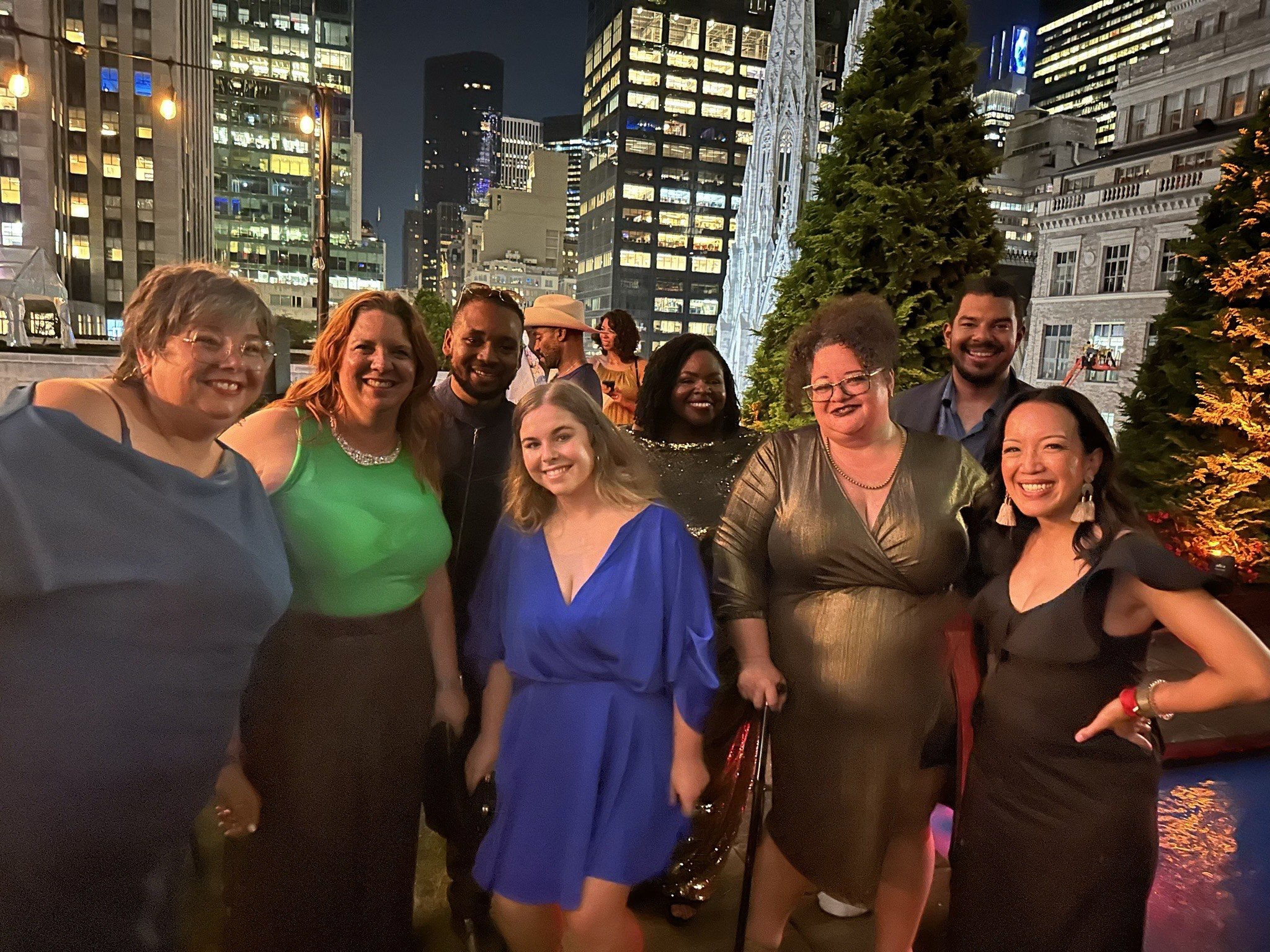Searching for Fat Bodies: NAAFA’s Partnership with Pinterest
Late last year, our Administrative Director, Darliene Howell, forwarded me a message that had come into our general inbox. Her note at the top read: “THIS IS HUGE!” And it was. The message was from Alise Marshall, Head of Global Public Affairs at Pinterest. Pinterest is an internet platform for searching, comparing, and organizing images for inspiration ranging from craft projects, to manicure ideas, to fashion. Pinterest engages millions of users every day.
Pinterest was working on AI tools to make fashion searches more inclusive, and Alise reached out to us to seek fat leadership and ask for our insights to ensure authentic and appropriate representation of plus size people. They had already made their platform friendlier for fat people by being the only major social media platform to ban advertisements for weight loss diets. They’ve also worked toward better representation for BIPOC people by creating tools to ensure that people of all skin tones and hair textures show up in search results so that users can see themselves reflected and so that everyone can see a wide range of beauty.
It was clear from our first meeting with Pinterest that the team they put together to do this work would treat this project like the high priority it should be. Our Communications Team (me, Darliene, Board Chair Amanda Cooper, and Social Media Director Tamra Dozier-Garland) provided feedback and guidance based on our collective lived experiences and NAAFA’s decades of work to support and represent fat people. The Pinterest folks we got to work with were diverse in so many ways–body type, age, 2LGBTQIA+ identities, race, nationality, and more, so the lived experience they were bringing to the table was varied and broad. They did a lot of groundwork before approaching us, learning about fat liberation and exploring how to make Pinterest more representative of bodies of many shapes and sizes. They already had one fat liberationist on their internal team (Megan D’Alession, who has also taught about fat lib politics at Stanford University), and everyone we have interacted with since our first meeting has shown a genuine interest in ongoing learning about intersectional fat community.
In early September, Pinterest rolled out new search technology that ensures that when people search for fashion inspiration, a wide variety of body types are shown in their search results. In other words, if you head over to Pinterest right now and search for fall fashions, you’ll see results ranging from thin people to extended size folks, without having to type “plus size”. This work builds on the previous work on skin tone and hair texture, so not only do plus size fashionistas show up, fat people of all shades and hairstyles are now in the results that everyone gets. Users can still use search terms to narrow the results (for example, if I only want to see other curvy and curly Black women, I can still do that) but now a mix of body sizes within the main results is simply the norm.
Imagine the whole internet working this way– instead of defaulting to thinness and whiteness, the default is to show a bunch of different people who look a bunch of different ways. Think about how we and everyone else around us can re-envision fat beauty, fat joy, fat self-expression when we have more opportunities to see reflections of ourselves.
Pinterest launched this new tool with events at the Harlem School for the Arts and Rockefeller Plaza. They invited community leaders, business leaders, and fashionistas to not only spread the word about how Pinterest is changing for the better, but also to highlight NAAFA and to learn how other organizations and businesses can partner with us and other fat lib leaders to incorporate a fat lib lens into their work, too. I was proud to represent NAAFA as a featured panelist at both events. Representatives from Estée Lauder and Dia & Co also discussed their work to make fashion and beauty more inclusive. The launch was scheduled to coincide with New York Fashion Week, highlighting the place fat fashion should have in mainstream fashion’s annual showcase event. The new product starts with fashion for women and femmes, including bridal wear, but we’ll be continuing to work with Pinterest on rolling out later versions to include masculine fashion.
Fashion is not superficial; it’s an essential component to meeting a key part of NAAFA’s mission–to change perceptions of fat. We’re thrilled to share this Pinterest work with you, and you can look forward to further updates on this historic partnership.







